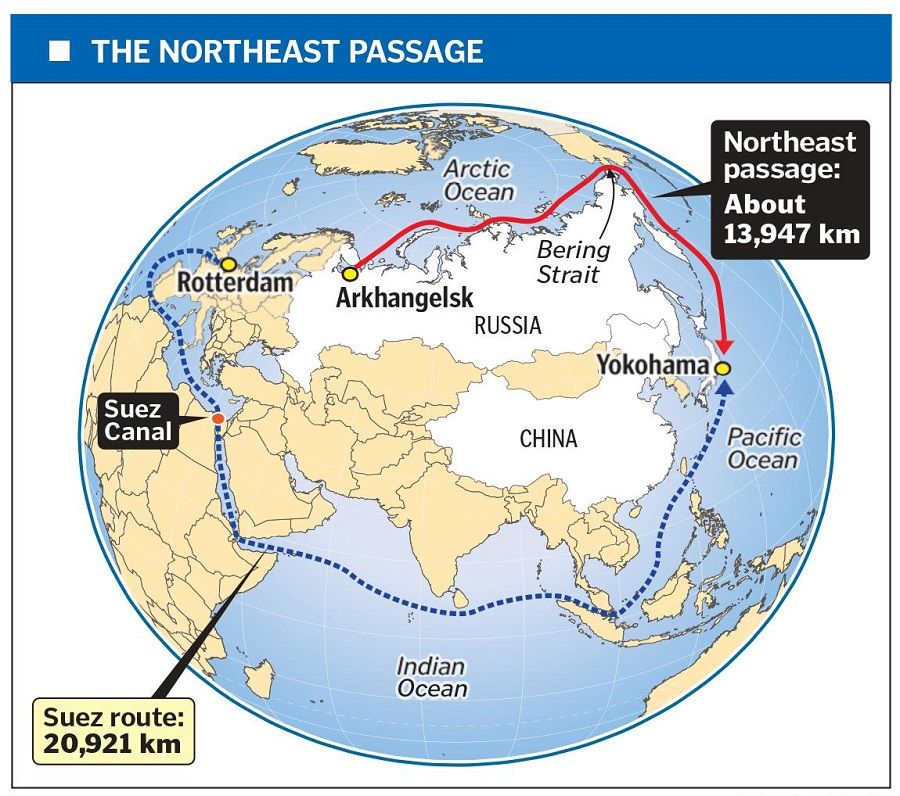The Northern Sea Route (NSR), also known as the Northeast Passage (NEP), is a shipping route connecting the eastern and western parts of the Arctic Ocean. The 13,000-kilometre NSR is shorter than the
21,000-kilometre Suez Canal route, and can reduce sailing time between Europe and Asia from
one month to less than a fortnight.
On 6 June 2023, Russian Prime Minister Mikhail Mishustin spoke at a strategic session on the NSR. The session evaluated the progress of the "Northern Sea Route development plan" which was approved by the Russian government in August 2022 that "includes [the] construction of more than 50 icebreakers and ice-class vessels, ports and terminals, emergency and rescue centres, [and] building an orbital group of satellites". Russia has pledged 2 trillion rubles (US$21.4 billion) over the
next 13 years to the development of the NSR.
Stronger Russia-India ties
On 27-28 March 2023, Alexei Chekunkov, the Russian minister for the development of the Far East and the Arctic, visited India to meet with Indian business circles and officials to discuss the
transportation of goods through the NSR via Russian and Indian ports. The meeting confirmed the
development of transport and logistics links via the NSR, the Arctic and Far Eastern Railway, and port infrastructure between India and Russia.
The Northern Sea Route (NSR), also known as the Northeast Passage. (SPH Media)
India was recorded as the largest buyer of Russian crude petroleum oil and the second-largest buyer of Russian oil after China in 2022. Russian
exports of crude petroleum oil to India increased significantly from US$1,221 million in 2018 to US$24,988 million in 2022, and overall Russian exports to India increased from US$8,695 million in 2021 to US$46,342 million in 2022. The NSR will provide India and Russia with the ability to increase bilateral trade further through its reliable and secure transportation of goods.




